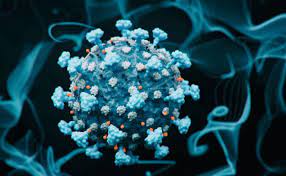New Covid Strain JN.1 Emerges: Should We Be Worried?

The emergence of a new Covid-19 strain, JN.1, has understandably sparked concern, prompting questions about its potential impact and whether we should be worried. While it’s too early to draw definitive conclusions, here’s what we know so far about JN.1:
Key Characteristics
- Variant of Interest: JN.1 has been classified by the World Health Organization (WHO) as a “variant of interest,” but not yet a “variant of concern.” This means it’s being closely monitored due to its potential to spread quickly, but it doesn’t currently pose a significant threat to public health.
- Increased Transmissibility: Studies suggest JN.1 may be more contagious than other circulating variants. This is attributed to specific mutations in its spike protein, which allows it to attach to and enter human cells more easily.
- Mild Symptoms: Fortunately, reported symptoms associated with JN.1 are similar to those of other Covid-19 variants, including fever, cough, fatigue, and headaches. Some cases have also reported loss of appetite and persistent nausea.
- No Increased Severity: Currently, there’s no evidence to suggest JN.1 causes more severe illness or leads to higher hospitalization rates compared to other variants.
- Vaccine Effectiveness: Existing Covid-19 vaccines are still expected to offer protection against severe disease and death from JN.1, although their effectiveness may be slightly reduced compared to other variants.
Recommendations
While JN.1’s emergence warrants vigilance, there’s no need to panic. Here are some sensible steps you can take:
- Stay informed: Keep yourself updated by following reliable news sources and official health advisories from organizations like the WHO and your local health department.
- Maintain preventive measures: Continue practicing basic hygiene habits like frequent handwashing, wearing masks in crowded settings, and maintaining social distancing.
- Get vaccinated and boosted: Vaccination remains the most effective way to protect yourself and others from severe Covid-19, including new variants. If you haven’t been vaccinated or boosted yet, please schedule an appointment as soon as possible.
- Seek medical advice: If you experience any Covid-19 symptoms, get tested and consult a healthcare professional.
Ongoing Research
Scientists are actively studying JN.1’s characteristics and potential impact, and we can expect regular updates and more definitive information in the coming weeks. In the meantime, by staying informed, taking precautions, and following public health recommendations, we can help mitigate the spread of JN.1 and protect ourselves and our communities.
Remember: The Covid-19 pandemic is still ongoing, and new variants will likely continue to emerge. However, by remaining vigilant, taking responsible steps, and adapting to the evolving situation, we can navigate this challenge together.






